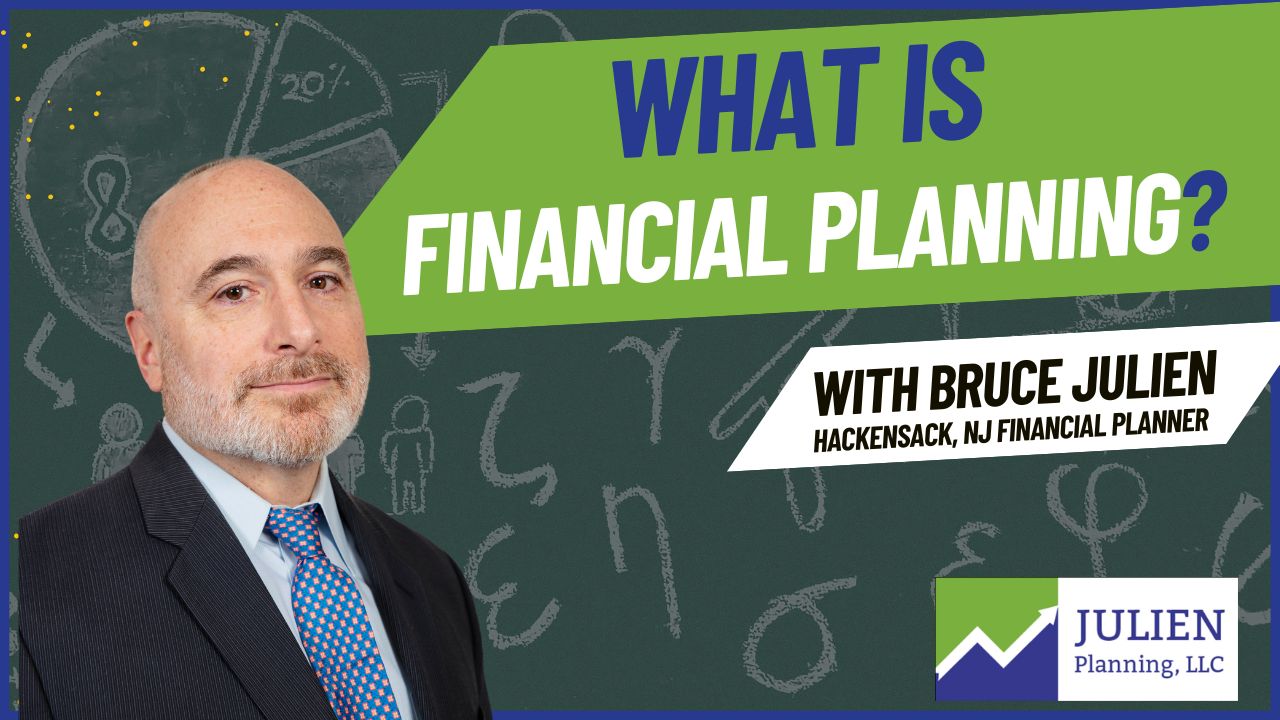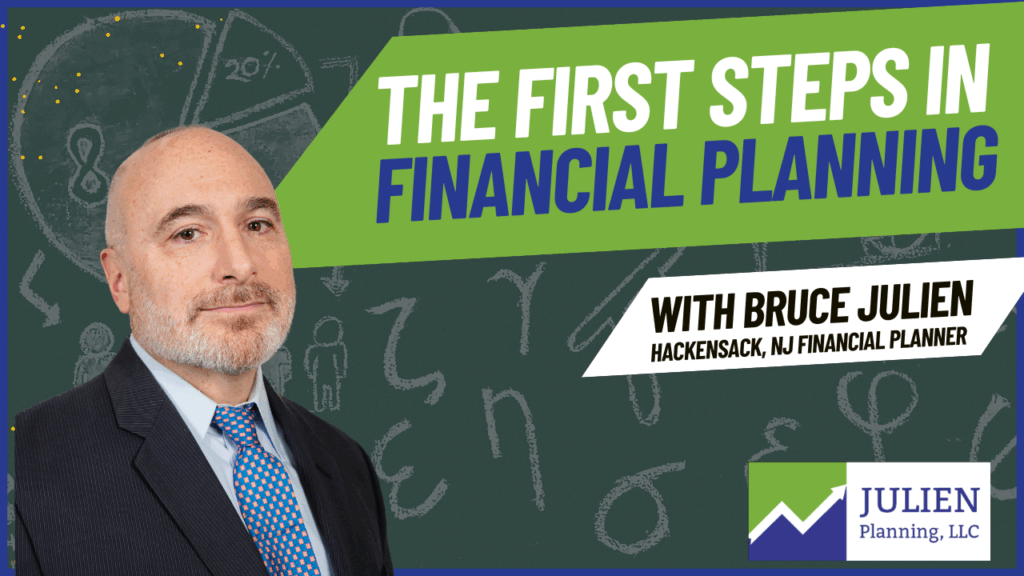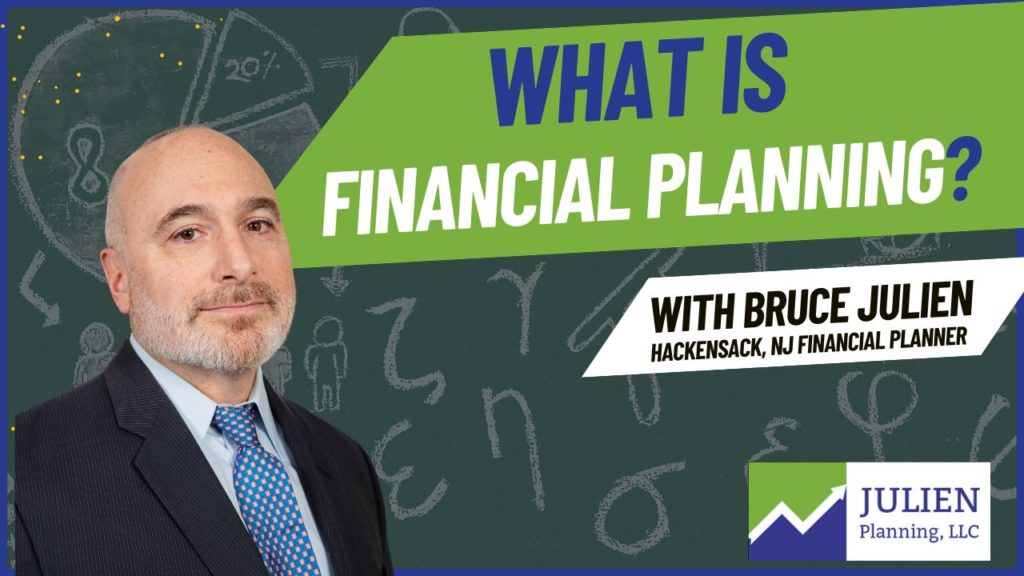7-Steps To Security: Crafting Your Financial Plan

In today’s fast-paced financial world, a structured financial plan is not just a luxury—it’s a necessity. With increasing economic uncertainty, market fluctuations, and rising costs of living, having a well-defined financial plan ensures individuals can manage risks, capitalize on investment opportunities, and achieve financial independence.
Introduction to a Financial Plan
A financial plan serves as a roadmap to both short-term stability and long-term prosperity. Without a financial plan, individuals often find themselves making reactive rather than proactive financial decisions. This can lead to overspending, mismanagement of assets, and lost investment opportunities. Studies show that individuals who actively engage in financial planning accumulate significantly more wealth than those who don’t.
For example, a CFP Board study found that households with a financial plan had over 2.5 times the net worth of those who lacked one. Even those with modest incomes who engaged in financial planning were able to retire with greater financial confidence than those who did not.
Key benefits of a well-structured financial plan include:
- Wealth Preservation: Helps protect accumulated wealth through risk management and investment diversification.
- Debt Reduction: A structured financial plan allows individuals to prioritize debt repayment and avoid high-interest financial traps.
- Investment Growth: Aligning investment strategies with life goals enables better asset allocation and long-term financial security.
- Retirement Readiness: Without a structured financial plan, many individuals underestimate how much they need to retire comfortably.
Common Financial Challenges
Many individuals face significant financial hurdles that prevent them from building wealth and securing their financial future. Understanding these obstacles allows for better preparation and strategic planning.
1. Emotional and Behavioral Spending
One of the biggest obstacles to financial stability is impulsive and emotional spending. Many individuals overspend due to lifestyle inflation, social pressures, or a lack of financial awareness. For example:
- Studies show that Americans spend 40% of their discretionary income on non-essential items, often at the cost of saving for retirement or investments.
- Behavioral finance experts note that instant gratification spending—such as purchasing luxury items beyond one’s means—leads to long-term financial insecurity.
2. Managing Debt
Debt can be a major roadblock to wealth accumulation. Many individuals struggle with balancing mortgages, student loans, credit card debt, and car payments, making it difficult to allocate money toward savings and investments.
- High-interest debt, especially credit card debt, can quickly spiral out of control if not managed properly.
- Many borrowers don’t have a structured repayment plan, causing them to pay more in interest than necessary.
- Some individuals take on unnecessary debt for lifestyle purchases rather than focusing on essential investments, like homeownership or retirement.
A financial plan ensures that debts are prioritized correctly, using strategies like the avalanche method (paying off high-interest debts first) or the snowball method (paying off smaller debts first to build momentum).
3. Inadequate Retirement Savings
Many people believe that Social Security or employer pensions will be sufficient for retirement. However, financial experts estimate that retirees need at least 70-80% of their pre-retirement income to maintain their lifestyle. Without a plan, individuals may find themselves outliving their savings.
- A study by the Economic Policy Institute found that nearly half of American families have no retirement savings at all.
- Many individuals fail to account for inflation, which reduces purchasing power over time.
- Without proper financial planning, healthcare costs in retirement—often one of the largest expenses—can become overwhelming.
A comprehensive financial plan incorporates retirement savings strategies, including:
- Employer-sponsored 401(k) plans and IRAs.
- Tax-efficient investing to maximize returns and minimize tax liabilities.
- Social Security planning to optimize benefits.
For more insights on tax strategies related to retirement, explore our guide on Tax Strategies for Retirement: The Tremendous 7.
4. Unexpected Expenses and Lack of Emergency Funds
Financial planners recommend having 3 to 6 months’ worth of living expenses saved in an emergency fund as part of a solid financial plan. However, studies show that 57% of Americans would struggle to cover an unexpected $1,000 expense without going into debt. Medical emergencies, car repairs, and home maintenance costs can derail financial stability if an emergency fund, a critical component of any financial plan, is not in place.
A solid financial plan includes an emergency savings strategy, helping individuals withstand financial shocks without relying on credit cards or loans.
- Failing to Optimize Taxes
Tax planning is often overlooked but plays a major role in the success of any financial plan. High-income earners, business owners, and retirees must strategically structure their finances to minimize tax liabilities and maximize after-tax income as part of their comprehensive financial plan.
Financial planners focus on:
- Tax-efficient investing (Roth vs. Traditional IRAs).
- Capital gains tax management through asset allocation.
- Tax deductions and credits that reduce taxable income, all integral parts of a well-rounded financial plan.
For a deeper dive into financial planning and how it impacts tax strategies, check out What is Financial Planning? The 6 Core Components.
Taking the First Step Toward Financial Security
Acknowledging financial challenges is the first step toward financial security. The next step is taking action by:
- Gathering financial data (assets, liabilities, income, expenses).
- Defining clear short-term and long-term financial goals.
- Understanding risk tolerance and investment options.
- Creating an action plan that aligns with personal financial objectives.
This article will break down key steps in financial planning, ensuring that individuals and financial advisors alike can develop strategic, goal-oriented financial roadmaps.
For expert guidance on creating a personalized financial plan, explore our contact page to schedule a consultation with Julien Financial Planning.
Steps to Creating a Comprehensive Financial Plan
Developing a comprehensive financial plan is essential for achieving financial security and reaching personal goals. This process involves several key steps:
1. Assessing Your Current Financial Situation
Begin by evaluating your financial health:
- Net Worth Calculation: List all assets (e.g., savings, investments, property) and liabilities (e.g., loans, credit card debt) to determine your net worth.
- Cash Flow Analysis: Track income sources and expenses to understand spending patterns and identify areas for improvement.
This assessment provides a clear picture of your financial standing, serving as a foundation for informed decision-making.apnews.com
2. Setting Financial Goals
Define clear, measurable financial objectives:
- Short-Term Goals: Targets achievable within a year, such as building an emergency fund or reducing debt.
- Long-Term Goals: Objectives like purchasing a home, funding education, or planning for retirement.
Establishing specific goals guides your financial strategy and motivates disciplined financial behavior.
3. Developing a Budget
Create a budget to manage income and expenses effectively:
- Categorize Expenses: Distinguish between fixed (e.g., rent, utilities) and variable (e.g., entertainment, dining out) expenses.
- Set Spending Limits: Allocate appropriate amounts to each category based on priorities and goals.
A well-structured budget ensures controlled spending and facilitates savings.
4. Managing Debt
Implement strategies to handle debt responsibly:
- Prioritize Debts: Focus on paying off high-interest debts first to minimize interest expenses.
- Debt Repayment Methods: Consider approaches like the debt snowball (paying off smallest debts first) or debt avalanche (tackling highest interest debts first).
Effective debt management improves credit scores and financial stability.
5. Saving and Investing
Plan for future financial needs through saving and investing:
- Emergency Fund: Aim to save 3-6 months’ worth of living expenses to cover unexpected costs.
- Investment Strategy: Diversify investments across asset classes (e.g., stocks, bonds, real estate) aligning with risk tolerance and time horizon.
Strategic saving and investing are crucial for wealth accumulation and achieving long-term goals.
6. Planning for Taxes
Understand tax obligations and opportunities for optimization:
- Tax-Efficient Investments: Utilize accounts like 401(k)s or IRAs to benefit from tax advantages.
- Stay Informed: Keep abreast of current tax laws and regulations to maximize deductions and credits.
Proactive tax planning can significantly enhance net income and savings.
7. Preparing for Retirement
Ensure financial independence in later years:
- Retirement Accounts: Contribute regularly to retirement plans, taking advantage of employer matches when available.
- Retirement Goals: Determine desired retirement lifestyle to estimate required savings.
Early and consistent retirement planning is vital for a secure and comfortable future.
By systematically following these steps, you can create a robust financial plan tailored to your unique circumstances and aspirations.
For personalized assistance in developing your financial plan, consider reaching out to Julien Financial Planning.
The Role of Julien Planning, LLC
At Julien Planning, LLC, we are committed to guiding our clients toward financial success through personalized and comprehensive financial planning services. Our approach is rooted in integrity, honesty, and over 30 years of experience, ensuring that each client receives tailored strategies aligned with their unique goals and circumstances.
Comprehensive Financial Planning Services
We offer a wide range of services designed to address various aspects of your financial life:
- Investment Management: Our team provides expert advice on investment opportunities, helping you build and manage a diversified portfolio that aligns with your risk tolerance and financial objectives.
- Tax Reduction & Preparation: We assist in developing tax-efficient strategies to minimize liabilities and optimize your financial outcomes, ensuring compliance with current tax laws.
- Estate Planning: Our estate planning services help you preserve your wealth and ensure a smooth transfer of assets to your beneficiaries, reflecting your wishes and legacy.
- Insurance Solutions: As licensed insurance producers, we offer guidance on selecting appropriate insurance products to protect you and your loved ones from unforeseen events. julienplanning.com+1julienplanning.com+1
Educational Resources and Expertise
We believe that informed clients make better financial decisions. To empower our clients, we provide:
- Webinars: Our educational sessions cover a range of topics, from tax strategies to investment insights, designed to enhance your financial literacy. julienplanning.com
- Blog Articles: Our blog offers timely financial insights and tips, keeping you updated on the latest trends and strategies in personal finance. julienplanning.com
- Personal Consultations: We offer personalized consultations to address your specific financial concerns and goals, providing tailored advice and strategies.
Personalized Consultations
Understanding that each client’s financial situation is unique, we emphasize personalized consultations. Our process involves:
- Detailed Financial Assessments: We conduct thorough evaluations of your current financial status to identify strengths and areas for improvement.
- Goal Setting: Collaboratively, we define clear and achievable financial goals, both short-term and long-term.
- Strategy Development: Based on your goals and risk tolerance, we develop customized strategies encompassing investments, tax planning, estate planning, and more.
- Ongoing Support: We provide continuous support and adjustments to your financial plan as your life circumstances and financial markets evolve.
At Julien Planning, LLC, our mission is to simplify your financial life, allowing you to focus on what matters most. We are dedicated to being your trusted partner on the path to financial security and prosperity.
For more information or to schedule a consultation, please visit our contact page.
Planning for Taxes
Effective tax planning is an essential component of a comprehensive financial plan. Without a clear strategy, individuals and businesses may end up overpaying taxes or missing opportunities to maximize deductions and credits. Proper tax planning ensures that you retain more of your earnings while remaining compliant with tax laws.
Understanding the Impact of Taxes on Wealth
Taxes affect nearly every aspect of financial life, from earned income and investments to retirement savings and estate transfers. Failing to plan for tax obligations can significantly reduce long-term wealth. Key areas where tax planning plays a crucial role include:
- Income Taxes: Understanding marginal tax brackets and leveraging tax deductions can reduce annual tax burdens.
- Investment Taxes: Capital gains, dividends, and interest income are all subject to taxation, but strategies such as tax-loss harvesting can help minimize liabilities.
- Retirement Taxes: Contributions to tax-advantaged retirement accounts like 401(k)s and IRAs can provide significant tax benefits.
- Estate and Inheritance Taxes: Planning for wealth transfer helps reduce tax burdens for heirs.
Key Strategies for Tax-Efficient Financial Planning
To minimize tax liabilities and optimize financial outcomes, consider the following strategies:
1. Utilizing Tax-Advantaged Accounts
Contributing to retirement accounts, such as 401(k)s, IRAs, and Roth IRAs, can provide substantial tax benefits.
- Traditional 401(k) and IRA: Contributions are tax-deductible, reducing taxable income in the current year. However, withdrawals in retirement are taxed.
- Roth IRA: Contributions are made with after-tax dollars, but withdrawals in retirement are tax-free.
For those planning for retirement, understanding the right mix of tax-deferred and tax-free accounts can help maximize after-tax income. Learn more in Tax Strategies for Retirement: The Tremendous 7.
2. Managing Capital Gains and Investment Taxes
Investors should consider tax-efficient investment strategies to reduce unnecessary tax burdens.
- Holding Investments for Over a Year: Long-term capital gains (taxed at lower rates) are preferable to short-term capital gains (taxed as ordinary income).
- Tax-Loss Harvesting: Selling underperforming investments at a loss can offset capital gains, reducing overall tax liability.
- Municipal Bonds: Interest earned on municipal bonds is tax-exempt at the federal level and may be exempt from state taxes as well.
3. Maximizing Tax Deductions and Credits
Taking advantage of available tax deductions and credits can lead to significant savings.
- Itemized Deductions: Mortgage interest, charitable contributions, and medical expenses may qualify for deductions.
- Tax Credits: Credits such as the Child Tax Credit, Lifetime Learning Credit, and the Earned Income Tax Credit can reduce tax liability on a dollar-for-dollar basis.
4. Estate and Gift Tax Planning
Without a solid estate plan, a significant portion of wealth can be lost to taxes upon inheritance. To prevent this:
- Gift Tax Exclusions: The IRS allows individuals to gift up to a certain amount each year tax-free.
- Trusts and Estate Planning: Establishing irrevocable trusts can help shield assets from estate taxes.
Staying Proactive with Tax Planning
Tax laws are constantly evolving, making it essential to stay informed. Working with a financial advisor who specializes in tax-efficient strategies can ensure that you take full advantage of available deductions, credits, and investment opportunities.
For personalized tax planning guidance, connect with Julien Planning, LLC to explore tax strategies tailored to your financial goals.
Preparing for Retirement
Retirement planning is one of the most critical components of a comprehensive financial plan. Without a structured strategy, individuals risk outliving their savings, struggling with rising healthcare costs, or failing to maintain their desired lifestyle. A well-crafted retirement plan ensures financial independence and peace of mind in later years.
The Importance of Early Retirement Planning
The earlier you start planning for retirement, the greater the financial security you will have. The power of compound interest allows investments to grow exponentially over time, making early contributions to retirement accounts significantly more valuable.
Consider this:
- Someone who starts saving $500 per month at age 25 could accumulate nearly $1.1 million by age 65 (assuming a 7% annual return).
- If the same person starts saving at age 40, their total would only reach around $400,000 by retirement.
This demonstrates why delaying retirement savings can be costly and why starting early provides a significant advantage.
Types of Retirement Accounts and Their Benefits
1. Employer-Sponsored Retirement Plans
Many employers offer 401(k) or 403(b) plans, allowing employees to contribute pre-tax income, reducing their taxable income while saving for retirement.
- Employer Matching Contributions: Many companies match employee contributions up to a certain percentage—free money that boosts retirement savings.
- Tax-Deferred Growth: Earnings in a traditional 401(k) grow tax-free until withdrawal.
2. Individual Retirement Accounts (IRAs)
For those without an employer plan, or as an additional savings vehicle, IRAs provide another tax-advantaged way to save.
- Traditional IRA: Contributions are tax-deductible, and withdrawals in retirement are taxed as income.
- Roth IRA: Contributions are made with after-tax dollars, but withdrawals in retirement are tax-free, making it a valuable long-term savings tool.
3. Health Savings Accounts (HSAs) for Retirement
Healthcare costs in retirement can be overwhelming. A Health Savings Account (HSA) offers tax benefits for medical expenses, and funds roll over indefinitely.
- Contributions are tax-deductible.
- Withdrawals for qualified medical expenses are tax-free.
- At age 65, HSAs can be used for non-medical expenses, similar to a traditional IRA.
Calculating Retirement Needs
One of the biggest mistakes retirees make is underestimating how much they need. Experts suggest using the 80% rule—planning to have at least 80% of pre-retirement income to maintain a comfortable lifestyle.
- Estimate Living Expenses: Housing, food, healthcare, travel, and leisure activities.
- Account for Inflation: A $50,000 annual retirement budget today may require $100,000 in 25 years due to inflation.
- Factor in Social Security: Social Security benefits supplement retirement savings, but should not be relied on as the primary source of income.
Investment Strategies for Retirement
A well-balanced investment portfolio is essential for growing wealth while minimizing risk as retirement approaches.
- Younger Investors: Can afford to take more risk and invest in stocks for higher long-term returns.
- Mid-Career Investors: Should shift toward a mix of stocks and bonds for balanced growth.
- Near-Retirement Investors: Should focus on low-volatility investments, such as bonds, annuities, and dividend-paying stocks, to protect their savings.
Withdrawal Strategies in Retirement
Once retired, having a withdrawal plan is crucial to ensure funds last throughout retirement.
- The 4% Rule: A commonly used strategy where retirees withdraw 4% of their portfolio annually, adjusted for inflation.
- Tax-Efficient Withdrawals: Withdrawing from taxable accounts first (rather than retirement accounts) can help minimize tax burdens.
The Role of Professional Retirement Planning
Navigating retirement planning alone can be challenging. Working with a financial advisor ensures that:
- You have a customized retirement strategy that aligns with your goals.
- Your investments are optimized for growth and security.
- You maximize Social Security and tax-advantaged savings.
For expert retirement planning assistance, schedule a consultation with Julien Planning, LLC.
The Role of Julien Financial Planning
At Julien Financial Planning, we take a holistic approach to financial well-being. Our expertise spans investment strategies, tax planning, retirement preparation, and risk management, ensuring that every client receives a customized financial plan tailored to their unique needs and long-term goals.
Comprehensive Financial Planning Services
Financial planning is not a one-size-fits-all solution. At Julien Financial Planning, we partner with individuals and families to design financial strategies that align with their aspirations. Our services include:
1. Investment Management
We help clients develop diversified portfolios that balance growth potential with risk tolerance. Our investment strategies include:
- Asset Allocation: A mix of stocks, bonds, real estate, and alternative investments to maximize returns while managing risk.
- Tax-Efficient Investing: Strategies such as tax-loss harvesting and using tax-advantaged accounts like IRAs and 401(k)s.
- Retirement Investment Planning: Adjusting portfolios based on life stages, from aggressive growth in early years to capital preservation closer to retirement.
2. Tax Optimization Strategies
Minimizing tax burdens is a key part of wealth management. Our tax planning services focus on:
- Maximizing Tax-Advantaged Accounts: Contributions to Roth IRAs, Traditional IRAs, and HSAs for long-term savings benefits.
- Tax-Efficient Withdrawals: Structuring retirement distributions to minimize taxable income.
- Small Business Tax Planning: Optimizing tax strategies for entrepreneurs, including deductions and credits.
For a deeper dive into effective tax strategies, check out Tax Strategies for Retirement: The Tremendous 7.
3. Risk Management and Insurance Planning
Life is unpredictable, but proper risk management can protect your financial future. We assist with:
- Life Insurance and Disability Insurance: Ensuring income protection in case of unexpected life events.
- Long-Term Care Planning: Preparing for potential healthcare needs in retirement.
- Asset Protection Strategies: Safeguarding wealth against economic downturns and unforeseen financial setbacks.
4. Estate and Legacy Planning
Preserving and transferring wealth efficiently is a critical aspect of financial planning. Our estate planning services include:
- Wealth Transfer Strategies: Structuring trusts and wills to minimize estate taxes.
- Charitable Giving Plans: Helping clients integrate philanthropy into their financial legacy.
- Estate Tax Reduction Strategies: Ensuring that assets pass efficiently to beneficiaries.
Educational Resources and Expertise
At Julien Financial Planning, we believe knowledge empowers better financial decisions. We provide:
- Educational Webinars and Workshops: Covering topics like investing, tax planning, and retirement strategies.
- Financial Planning Blog: Featuring insights and practical advice on money management.
- One-on-One Consultations: Personalized sessions to address specific financial concerns.
For an overview of financial planning fundamentals, explore What is Financial Planning? The 6 Core Components.
Personalized Consultations: A Roadmap to Your Financial Goals
Our personalized financial consultations provide actionable strategies to help clients:
- Assess their current financial situation.
- Define clear short-term and long-term goals.
- Develop customized investment, tax, and retirement plans.
- Adjust strategies over time to meet evolving financial needs.
Whether you’re planning for retirement, optimizing tax strategies, or growing wealth, Julien Financial Planning ensures that every step is strategic and tailored to your life goals.
To schedule a personalized consultation, visit our Contact Page.
Taking Control of Your Financial Future
Financial planning is not just about saving money—it’s about strategically managing wealth, minimizing risks, and ensuring financial security for the future. Whether you’re planning for retirement, managing debt, or optimizing taxes, having a well-structured financial plan is the key to long-term success.
Key Takeaways from This Guide
Throughout this article, we have explored:
- The Importance of a Financial Plan: Why having a structured roadmap helps individuals achieve their financial goals.
- Common Financial Challenges: The impact of debt, taxes, and unexpected expenses on wealth accumulation.
- Steps to Creating a Comprehensive Financial Plan: From assessing current financial situations to retirement planning.
- The Role of Tax Planning: How tax-efficient strategies enhance financial well-being.
- Preparing for Retirement: Key investment strategies and withdrawal planning for a secure retirement.
- Julien Financial Planning’s Approach: How personalized financial services can help individuals take control of their finances.
Empowering Your Financial Decisions
Financial security doesn’t happen by chance—it requires thoughtful planning, informed decision-making, and proactive adjustments over time. By working with a professional financial advisor, you can ensure that every aspect of your finances—from budgeting and investing to tax planning and estate management—is optimized for success.
At Julien Financial Planning, we provide the expertise and personalized guidance needed to help you navigate life’s financial complexities. Whether you’re just getting started or looking to refine your existing financial strategy, our team is here to help.
For professional assistance, schedule a consultation today:



